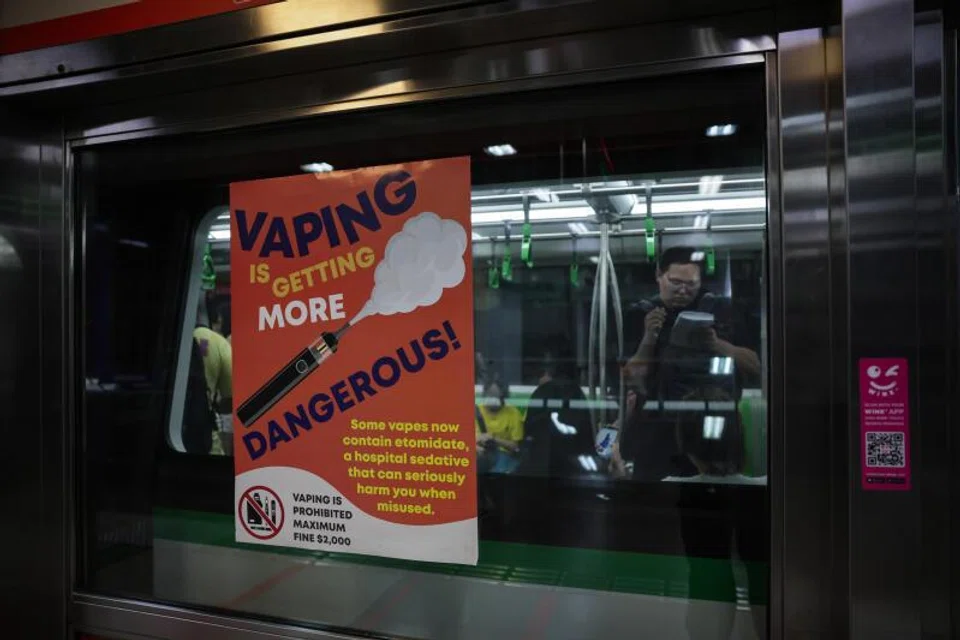
The Campaign for Action on Smoking and Health is calling on the government to ban e-cigarettes and vaping before more children become addicted. George Butterworth, the campaign's spokesperson, stated that "the government must make an urgent decision to ban e-cigarettes before more children become addicted to nicotine.
The Consumers' Association of Penang (CAP) has called on the Ministry of Health to immediately ban all types of electronic cigarettes.
CAP education officials and anti-smoking activists, including N.V. Subbarow, have warned that if the Ministry of Education doesn't make such a decision, many children will be at risk.
He said that a new study by CAP has shown that there are many cheap electronic cigarettes available in the market, which children can easily purchase.
He said that the traders did not ask for the age of the buyers when selling these things.
Some 8-year-old children have previously smoked and are now purchasing electronic cigarette devices because they are sold in fruit-flavored liquids.
Some of the boys we surveyed admitted to sharing expenses and small items. For instance, a group of about four or five students pooled their money to purchase these items.
The investigation also revealed that an increasing number of adolescents are becoming addicted to them.
Therefore, the government must make an urgent decision to ban electronic cigarettes before more adolescents become addicted to nicotine," he told the New Straits Times.
He responded to a recent report by NST on the increasing number of e-cigarette poisoning cases among young children.
The National Poison Centre at Universiti Sains Malaysia has revealed that there have been 57 reported cases of poisoning caused by vaping since it was first commercialised in 2015 up until August of this year.
Subbarow stated that so far, over 20 countries have prohibited the sale of e-cigarette products, with most of them located in South America, the Middle East, and Southeast Asia.
Thailand has strict laws, while Australia, Canada, and Norway have implemented many restrictions. However, in Malaysia, it is an easily purchasable product that can be bought anywhere.
Now, stalls that sell candy and magazines are selling electronic cigarettes, and many supermarkets near schools are also selling these products to students.
Many young people who have never smoked before are using electronic cigarettes, which come in over 16,000 different flavors.
The Consumer Association of Penang has called for an immediate decision to be made in banning electronic cigarettes and their potential harm on the brain development of young people.
According to a survey conducted by CAP, Subbarow stated that the investigation revealed children, including primary and secondary school girls, are becoming addicted to e-cigarettes, and young people are increasing their smoking habits.
According to a report by the Campaign for Tobacco-Free Kids, these e-cigarettes are like candy to these children due to the fruity liquid flavors, he said.
In late July, Health Minister Khairy Jamaluddin tabled the Tobacco and Smoking Control Bill for its first reading in the Dewan Rakyat, with the aim of curbing smoking habits and protecting the health of Malaysians.
This law will apply to people born after 2007, rather than the initially proposed year of 2005.
If passed, Malaysia will not only ban smoking but also prohibit individuals born after 2007 from owning tobacco products.
The bill, also known as the Tobacco Endgame Bill, was initially put on hold and subsequently resubmitted to the parliamentary select committee after receiving various complaints and suggestions.
Statement:
This article is compiled from third-party information and is intended for industry communication and learning purposes only.
This article does not represent the views of 2FIRSTS, and 2FIRSTS cannot confirm the truthfulness or accuracy of the content. The translation of this article is intended solely for industry exchange and research purposes.
Please note that due to limitations in translation skills, the translated article may not express the original text accurately. Therefore, please consult the original text for accuracy.
2FIRSTS maintains complete alignment with the Chinese government regarding any domestic, Hong Kong, Macau, Taiwan, or foreign-related statements and stances.
The copyright for compiled information belongs to the original media and authors, and if there is any infringement, please contact us for removal.
This document has been generated through artificial intelligence translation and is provided solely for the purposes of industry discourse and learning. Please note that the intellectual property rights of the content belong to the original media source or author. Owing to certain limitations in the translation process, there may be discrepancies between the translated text and the original content. We recommend referring to the original source for complete accuracy. In case of any inaccuracies, we invite you to reach out to us with corrections. If you believe any content has infringed upon your rights, please contact us immediately for its removal.







